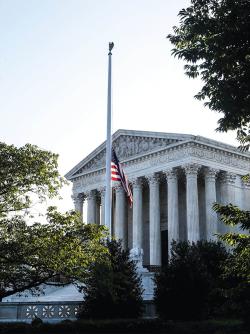The Freedom Trap
Are we truly more liberated today?
Of all the values society holds dear today, freedom must top the list. As we look around our nations and communities, what freedoms do we value? We value freedom of speech, freedom of travel, and freedom to act as individuals. We cherish freedom of choice—in marriage, family, religion, and myriad other aspects of our lives. Many even seem to value freedom from marriage, freedom from children, or freedom from religion, and the list of other “obstacles” to freedom goes on seemingly endlessly.
But does freedom have a price?
We memorialize freedom in our Independence Day celebrations, and we use freedom in our mottos—for example, “Live free or die” is the motto of the U.S. state of New Hampshire. Freedom seems to be a ubiquitous value the world over. People or nations that do not currently have freedoms often desperately long for them!
Yet with all the freedoms afforded to many in modern society, are we happier than we were in the past—when there were arguably fewer freedoms? Are we truly more liberated today? In our societal rush to become free from the shackles of religion, is it possible that we have become entrapped by making freedom and liberty our new gods?
In an article for PJ Media, author and commentator D. C. McAllister thoughtfully proposes that “the idol of freedom is the cause of our loneliness.” McAllister drew the following profound conclusion about our freedom to choose for ourselves:
While individualism and self-interest are fundamental to our happiness as politically free people, they have a dark side when out of balance. This was a concern of Alexis de Tocqueville when he commented on the development of the American democracy. Individualism had a way of separating the much-needed bonds of society. Left unchecked, families would no longer be close. Friendship would degenerate into relationships of convenience not commitment. Communities would fray. Selfishness and narcissism would drive away empathy and self-sacrifice. Intimate social connections would be lost.
Is this not what we are witnessing in society today?
McAllister went on to identify the crux of the problem:
When morality is rejected and the subjective becomes the standard for truth, the subject [that’s us] is instantly and permanently isolated. He is living on an island of one…. Freedom from a relationship with God has plunged us into existential angst and a loss of significance. Freedom from virtue, judgment, law, and regulating moral principles has cast us into a sea of abandonment.
Is there any wonder why, in this age of freedom, there is less happiness, more hatred, and high rates of drug use and suicide? In our quest for the ultimate freedoms, we have cast off the virtues and values that can truly make us free.
It is a sad twist of irony that much of society has abandoned truly liberating values and their source—the Bible. God’s word holds the keys and outlines the path to true freedom and happiness. The teachings of the Bible reveal that God’s truth is what will set us free (John 8:32), not our opinions or feelings. And, contrary to the beliefs of much of modern “Christianity,” God’s law—summarized by the Ten Commandments—is called “the perfect law of liberty” (James 1:25).
If we seriously consider this, we should see that adherence to God’s laws would actually free society from crime, murder, hate, depression, exhaustion, loneliness, and so many other modern plagues. Modern society has allowed its relentless pursuit of freedom and happiness to become its most important priority, placing that above friends, family, colleagues, and allies—our “neighbors,” whom we are to love even as ourselves (Leviticus 19:18; Matthew 19:19).
The idolatrous pursuit of freedom has become a painful trap that is holding society captive. But there is another, happier, more fulfilling way within our reach. You can find true freedom in the pages of your Bible. To find out how, request a free copy of The Ten Commandments or read it online at TomorrowsWorld.org.






